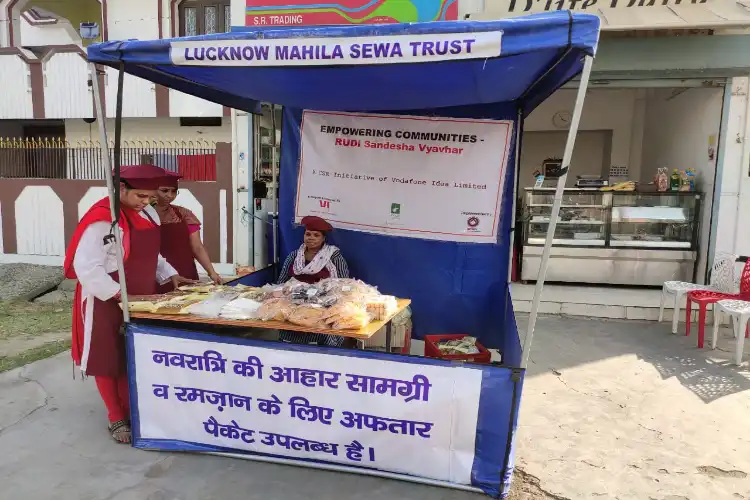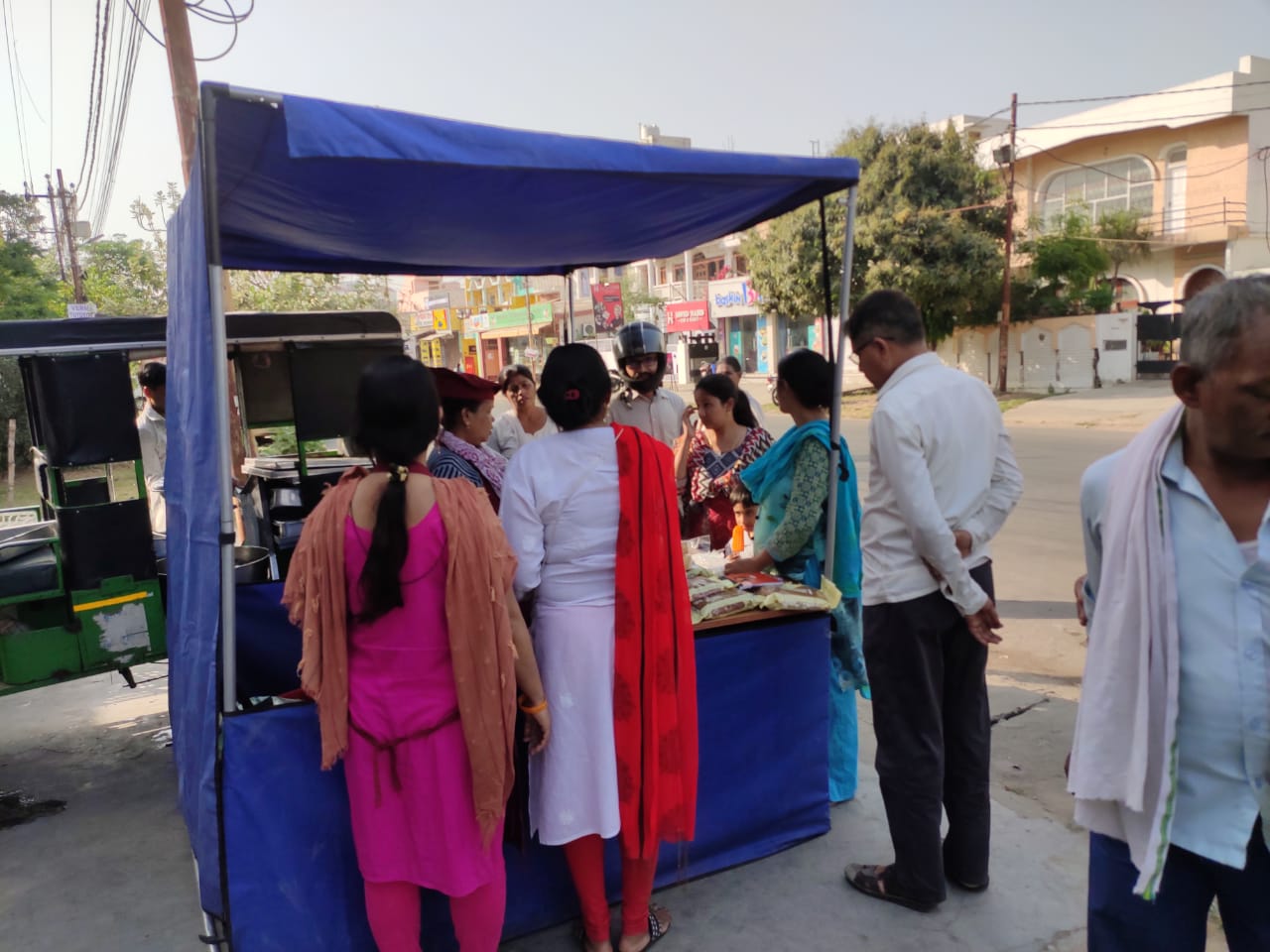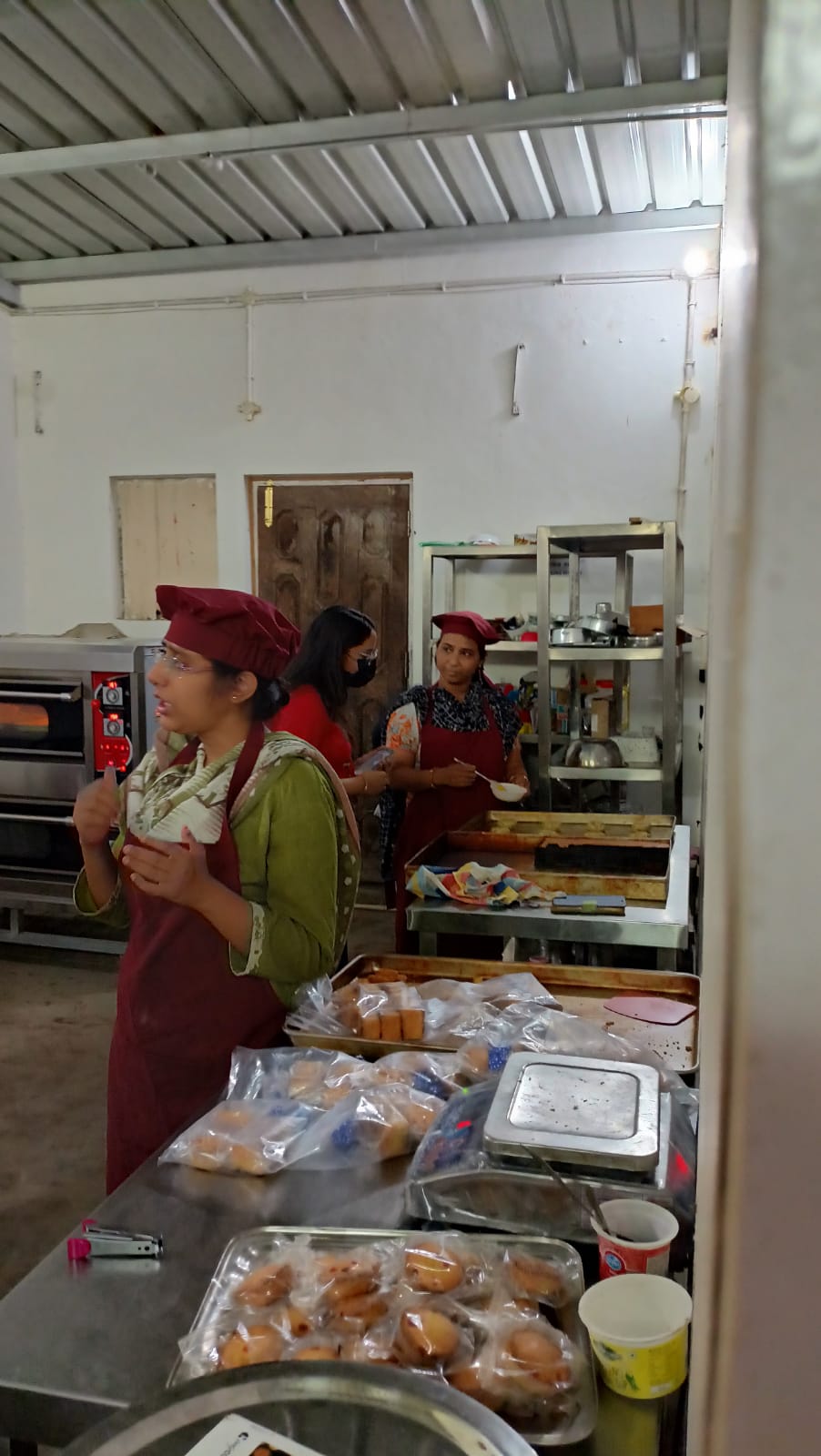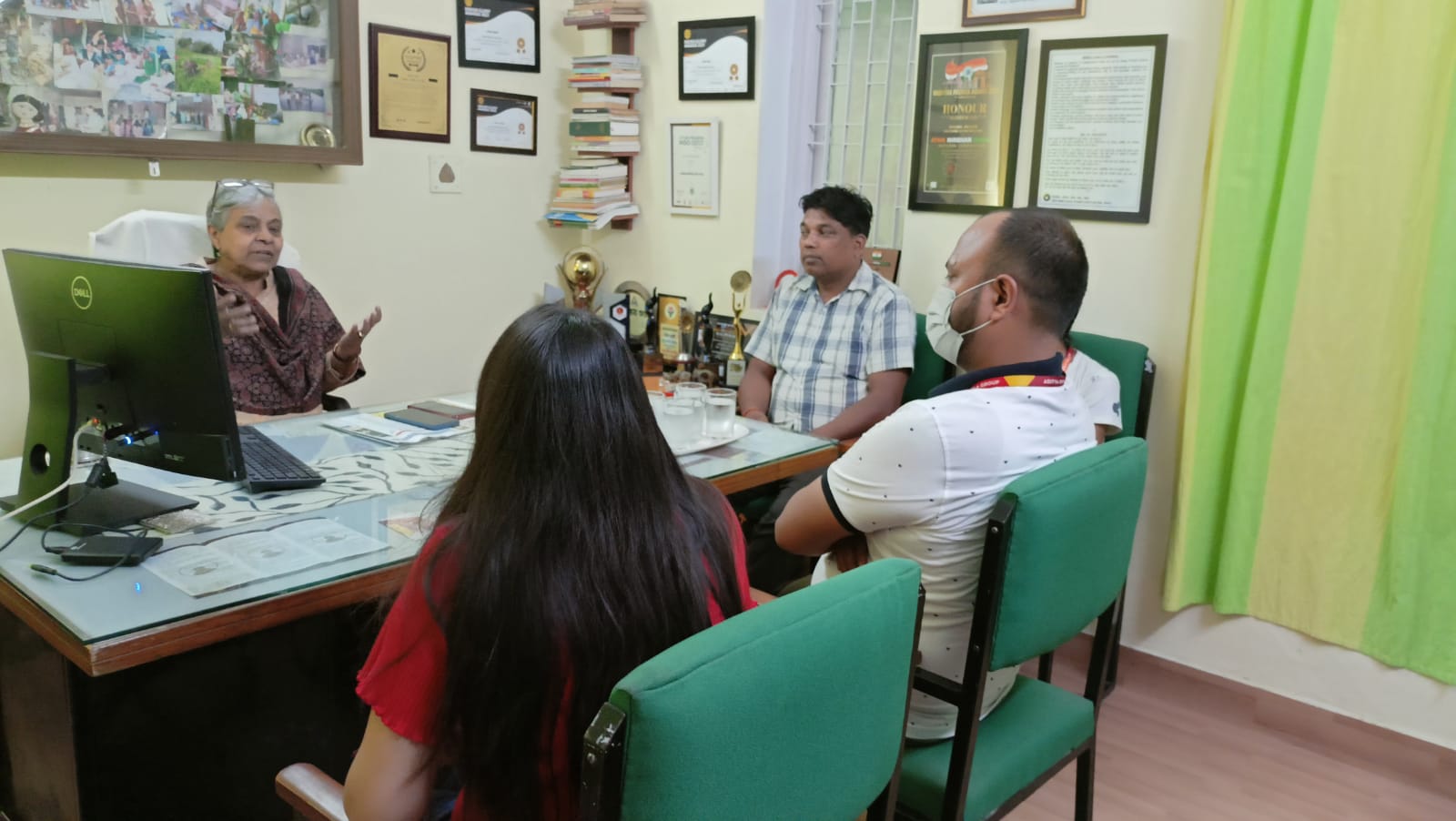
Neelam Gupta/New Delhi
When Lucknow’s Jeevika Bakers put up a stall at Vikas Nagar with a board “Food material for Navratri and Food packets for Iftar available” little did its founder Farida Jalees know that her experiment to make a point about the unity of the people of India’s major religions would also translate into a great business idea.
Although it’s quite often that the 9-day festival of Navratri coincides with the month of Ramazan, it’s not so common to see Hindus and Muslims eating out of the same hands due to food restrictions in their respective festivals – while Muslims are free to eat only between the dusk and the dawn while fasting for the day, the Hindus fasting on Navratri forego grains and strictly adhere to a vegetarian diet.
Farida Jalees, the founder of Lucknow Mahila Sewa Trust, who had boldly four startups during the Covid-19 lockdown to sustain the livelihoods of some 2.5 lakh women associated with her self-help group, said, “we have never felt these two (festivals) are different. We endeavor to make Jeevika Bakers viable and for this, I have been making use of every festival to sell baked foods under a canopy in marketplaces.”

Customers buying goodies at the stall
As Farida realized the coinciding of the two major Hindu and Muslim festivals she hit upon this idea. “I thought, why not people of both the communities get the facility of foods needed for fasting from one place.“
Wasn’t that a risky idea in the given environment and due to the sanctities attached to the festivals?
Farida says: “I told you we don’t see the two (religions) as different. The philosophy of service is the equality of religions. All our programs begin with prayers of four religions. So there was no fear or apprehension in our minds. Anyway, our approach was pure business. We were giving a facility to the people through our goods. And experience proved that people liked this.”
Anjana Verma, Production In charge of Jeevika Bakers explains the business idea that clicked. 'When we put up our canopy on the first day in Vikas Nagar Sector-3, we noticed people stopping, reading the banner, and leaving. Some of them stood there for a while and took a hard look at the goods.”
“No goods were sold on the first day.

Jeevika Bakers Kitchen
“We were very disappointed but the next day we put up our canopy at around 11 am. We were selling Navratri food Sabudana (sago) savories, roasted peanuts, potato chips, dry fruits, and kuttu (millet) flour poori. In the Ramazan section, we offered packets of dates, matri, pakoras, vermicelli, biscuits, shakarpare, and namakpare.
“We saw that some of the people who had looked at our stall a day ago returning to buy the food. This boosted our spirits. The stall was closed for an hour in the morning. However, when we returned in the evening for two hours, we saw a big rush - common people, students living in nearby hostels or PG or youth preparing for competitive exams, asking for Navratri and Iftar food.”
The students didn’t have time and facilities to make their special food during Navratri. Some of them were not even sure of what to eat. “From the next day onwards, we started packing potato curry along with poori for them,”
Since that day, Jeevika Bakers have started taking orders for Navratri food on phone and they can pick up the same from the service center of Jeevika Bakers' local office. They have become our regular customers, says Anjana.
Next Sewa put up a stall each in the Aliganj and Lekhraj areas of Lucknow as both localities have a good population of Muslims.
Jeevika Bakers processing in-charge Rahisa Hashmi said – We were a little scared on the first day.

Farida Jalees with Pantaloon officials in her office
“Farida Behan was constantly in touch with us on the phone. It was a pleasant surprise to see people flocking to our stall after reading our banner - 'Navratri food items and Ramzan Iftar packets are available. We would first tell them all about the service; how Jeevika Bakers started during the Corona period, she explained the idea of Jeekiva Bakers - to make poor working sisters, irrespective of caste or religion, self-reliant – to them.” Rahisa told Awaz-the Voice.
“People listened to us; some would leave quietly and others bought a couple of packets. Some picked our service brochure with them. Many would appreciate our work and ask us to continue it. All this was very encouraging. It was only after our good experience of Vikas Nagar that we had decided to install put-up stalls in these areas.”
The Jeevika Bakers were happy with their earnings during the festival and there was yet another pleasant surprise coming their way.
Shubham Sharma said, “We were all surprised that day when a nine-member team of Pantaloon showroom of Aditya Birla Company in Lucknow came to our office and praised our effort.” The team visited the Jeevika Bakers and donated the raw material worth Rs 11,500 to us.” Pantaloon showroom manager Nikita said, “The best thing about Lucknow Mahila Seva Trust is that it is working to make poor rural women financially self-reliant. Second, it takes donations in kind and not in cash.
“We saw Jeevika Bakers and realized that their products are healthy. For example, their biscuits are made of floor and not maida. The quality is good; cleanliness is taken care of. Also, the foods that they make are not available in the market. And above all, their earnings are shared by the women members. They don’t need any support.’
Also Read: Farida Jalees used lockdown to create new livelihoods for women
Nikita said the Pantaloons have decided to source food for its office parties from the Jeevika Bakers.
Jeevika Bakers were started by Farida Jalees in 2021 to employ to sustain the livelihood of women in the second wave of Corona. In a year the startup has almost become viable and self-sufficient.
